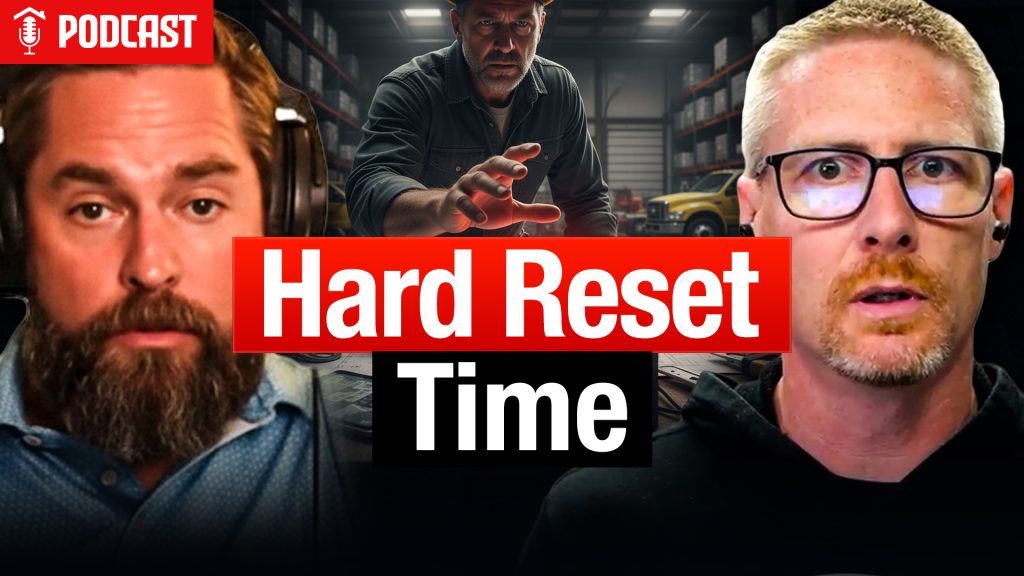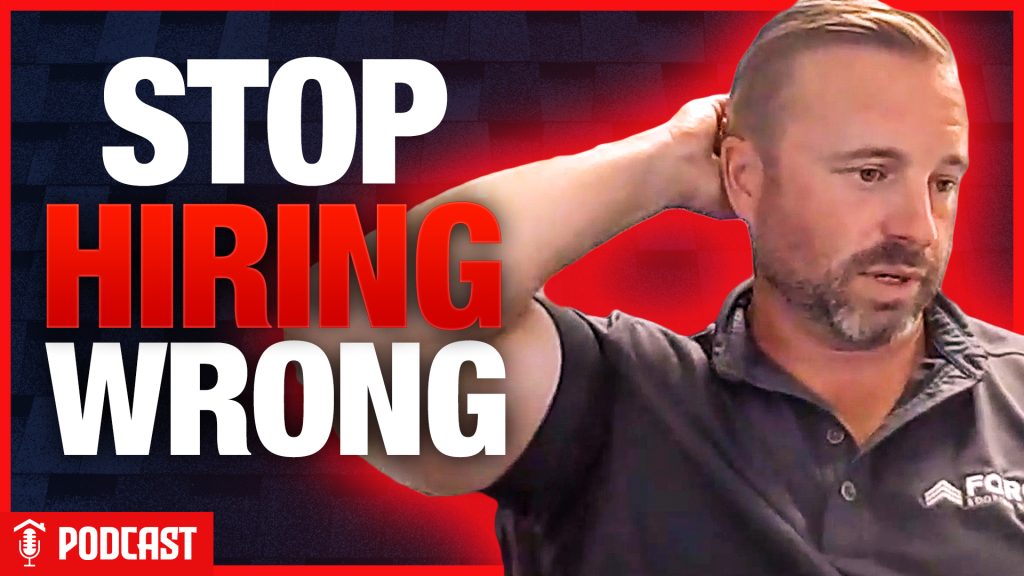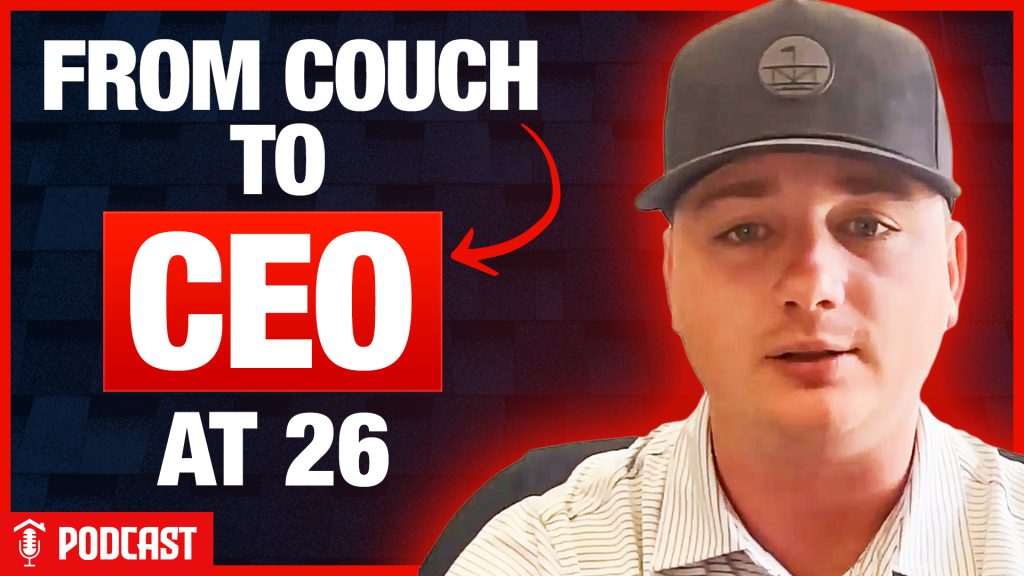Guest: David Dees, Force Roofing Systems
Host: Jim Ahlin, Roofing Success Podcast
Listen to the Episode: https://roofingsuccesspodcast.com/david-dees-roofing-team-hiring-mistakes-273
Links:
https://forceroofingsystems.com
🤖 Have a question? Ask this customized ChatGPT for the answer! Specifically designed for this episode, it’s here to help:
https://roofingpod.com/chatgpt-273
Building a Roofing Team That Sticks: Lessons on Hiring and Culture
Building a roofing company that lasts isn’t just about landing jobs and installing quality roofs—it’s about the team behind the work. In this Roofing Success Podcast episode, David Dees, founder of Force Roofing Systems in Middle Tennessee, shares how he built a strong, professional roofing business after leaving a corporate career in distribution. His journey highlights one of the biggest lessons contractors face: hiring the wrong people will cost you far more than investing in the right ones.
David’s story is packed with practical wisdom on scaling intentionally, managing stress, leveraging vendor partnerships, and—most importantly—building a team that represents your brand with professionalism and pride.
From Supply Side to Roofing Company Owner
Before starting Force Roofing in 2021, David spent nearly a decade at Beacon Supply. That experience gave him a deep understanding of roofing systems, estimating, and contractor challenges. But despite a stable career and benefits, he craved something more.
“I envied the contractors I sold to. They were building something bigger than themselves—providing jobs, serving communities, and creating a legacy,” David explains.
That competitive drive pushed him into entrepreneurship, and within just a few years, Force Roofing became a trusted name in residential, commercial, and multifamily roofing.
Diversification: A Key to Stability
Force Roofing didn’t start with a massive team or a giant client portfolio. David began as a one-man show handling repairs and replacements. Over time, the business expanded into:
- Residential roofing (repairs, retail, and insurance work)
- New construction (production builders and custom homes)
- Commercial and multifamily projects
One breakthrough came when a client found Force Roofing online and asked them to bid a multifamily job. Winning that project opened doors to recurring, high-margin work.
This diversification proved crucial for stability. When one revenue stream slowed, another kept the company moving forward.
Leveraging Vendor Partnerships for Growth
David credits much of his success to working closely with manufacturers and suppliers. Instead of just shopping for price, he built relationships that delivered training, product knowledge, and marketing support.
“Your vendors are hungry to help,” he notes. “Ask them to come in for lunch-and-learns, provide product updates, or even train your team on estimating and project management. They have resources that can make you better.”
By treating vendors as partners rather than adversaries, Force Roofing gained an edge in professionalism and technical expertise.
Hiring Mistakes and Lessons Learned
The hardest—and most expensive—lessons came with hiring. Like many contractors, David made the mistake of hiring too quickly when overwhelmed by workload.
“I was hiring fast and firing too slow,” he admits. “I thought I could make people better if I gave them time, but in reality, some hires were bad for our culture, our customers, and even our sales team.”
Some poor hiring decisions even cost the company builder relationships worth millions. David eventually turned things around by slowing down the process and involving multiple team members in interviews. Today, three people interview every candidate before an offer is made.
Another lesson: don’t skimp on pay for key roles. “If you want a $100,000-quality employee, you can’t hire at $45,000,” David emphasizes. Paying for skill and professionalism is an investment that saves money and protects your reputation long term.
Building Culture and Structure
By 2023, Force Roofing had grown to 23 employees, with clear departments for estimating, sales, project management, and office operations. Culture became the glue holding it all together.
“The ‘F’ in Force stands for family,” David says. “When you have a great culture and open communication, you can really be successful—even as a small shop.”
Processes and SOPs also became essential. Instead of running everything himself, David built systems that empowered his team to operate independently and consistently.
Service Work: The Overlooked Profit Center
One of Force Roofing’s most effective strategies is offering service work, such as roof tune-ups and preventative maintenance.
“Service margins can hit 60 to 80 percent, and it builds lifetime customers,” David explains. Their roof tune-up package includes replacing pipe boots, checking flashings, and securing shingles—starting at $1,200.
Not only does this create short-term profit, but it also keeps Force Roofing top-of-mind when it’s time for a full replacement.
Business Development vs. Sales
David distinguishes between sales (like residential replacements) and business development (like builder accounts). Builders require consistency, communication, and patience. You can’t expect to win all their work immediately.
His approach: offer to be the “secondary roofer.” When their main contractor is too busy, be ready to step in with professional service. Over time, this persistence builds trust and can turn into long-term partnerships.
Managing the Stress of Entrepreneurship
Leaving a corporate job for roofing entrepreneurship came with an unexpected level of stress.
“I had no idea what contractors went through—financial pressure, customer complaints, employee turnover, late-night calls,” David admits.
His advice for new contractors:
- Give yourself grace—success takes time.
- Build SOPs before scaling too quickly.
- Separate work and personal life (he wishes he’d gotten a second phone early on).
- Stay professional, even under pressure.
Closing Reflection
David’s journey underscores one of the roofing industry’s hardest truths: your people will make or break your business. The right hires, supported by strong culture and clear processes, allow a company to scale sustainably. The wrong hires can destroy trust, kill builder relationships, and drain profits.
As David says, “You don’t want to look like a bag of chaos on the job. You want to show up as a first-class organization.”
For roofing contractors, that means investing in people, processes, and partnerships that build a team—and a brand—that lasts.
FAQs: Roofing Business Takeaways from This Episode
Topic: Operations-Management
Q: How do I avoid hiring the wrong people for my roofing business?
A: Slow down your hiring process. Involve multiple team members in interviews, set clear expectations, and don’t settle just because you’re busy. Hiring the wrong person can damage culture, customer service, and builder relationships.
Topic: Operations-Management
Q: Should I pay more for experienced roofing employees?
A: Yes. Underpaying for key roles often leads to costly mistakes and turnover. Experienced project managers and estimators can save you money by improving efficiency, managing jobs correctly, and protecting your reputation.
Topic: Growth-Expansion
Q: How can I diversify my roofing business to stay stable?
A: Offer a mix of services—residential repairs, replacements, new construction, commercial, and multifamily. Diversification ensures that when one market slows, another keeps revenue flowing.
Topic: Marketing
Q: What role do vendors play in growing a roofing company?
A: Vendors can provide training, product updates, marketing support, and even estimating help. Treat them as partners, not just price providers. Strong vendor relationships can help your team stay sharp and professional.
Topic: Customer-Service
Q: Is it worth offering roof repairs and service work?
A: Absolutely. Service work builds lifetime customers, creates steady revenue, and offers high profit margins. Preventative maintenance packages also position your company as a trusted advisor.
Topic: Sales
Q: How do I win builder accounts as a newer roofing company?
A: Be consistent, patient, and willing to start as their secondary roofer. Show up, communicate professionally, and prove you can deliver when others can’t. Business development is about long-term trust, not quick wins.
Topic: Finance-Accounting
Q: How do I balance paying higher salaries with keeping profits?
A: Offset higher payroll by pricing jobs correctly, offering service work with higher margins, and ensuring your processes maximize efficiency. Quality employees often create savings by avoiding mistakes.
Topic: Operations-Management
Q: How do I handle the stress of running a roofing company?
A: Set boundaries (like having a separate phone), give yourself grace, and build a support system of reliable staff. Stress is part of entrepreneurship, but SOPs and culture help lighten the load.
Topic: Education-Training
Q: Should I invest in vendor-led trainings for my team?
A: Yes. Lunch-and-learns, manufacturer courses, and product updates help your team stay knowledgeable and professional. Even small updates can give you a competitive edge.
Topic: Growth-Expansion
Q: How long does it take for SEO and marketing to make a difference for a roofing company?
A: Expect at least six months to see traction. Start early, even before launch, so your website and ads are in place when you open your doors. Longevity in the market strengthens your online presence.
Topic: Legal-Compliance
Q: How do I protect myself when working with builders?
A: Always review vendor packets and payment terms before signing. Ask for credit references or check with suppliers to ensure the builder pays on time. Protecting cash flow is critical when dealing with large accounts.
📚 Resources & Links:
🎯 Join Our Facebook Group: https://roofingpod.com/facebook
📱 Text Jim @ (612) 512-1812 – Say Hi!
💬 Leave Us a Review: https://roofingpod.com/review
🤝 Our Sponsors:
The Roofing & Solar Reform Alliance (RSRA)
Tired of predatory practices and shady players? RSRA is leading the charge to create a better future for roofing and solar contractors through education, community, and real reform.
PowerUp Agents AI
This AI tool helps your sales reps follow up faster, handle objections better, and close more deals. It’s like giving every rep a personal sales coach, on demand.
Day 41 Thrive
Day 41 Thrive specializes in coaching, mentoring, and consulting for entrepreneurs and home service companies. Whether you’re building your leadership skills or developing a stronger team, they help you lead with purpose, and thrive no matter the season.




